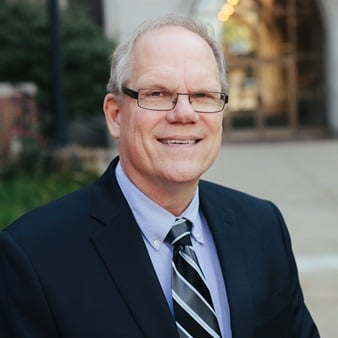
Daily Devotional | Living Forward
Danish philosopher Søren Kierkegaard observed, “Life can only be understood backwards, but it must be lived forwards.” The author of Hebrews might agree with this. The writer looks back to the Law of Moses to help us understand the uniqueness of Christ’s offering and urges us to set our hope on the coming of His kingdom. We live into the future, keeping in mind what God has done for us in the past.
The commands in today’s reading deal with life in the here and now, but a kingdom orientation shapes the lifestyle they describe. Showing hospitality, remembering those in prison, and keeping the marriage bed pure (vv. 2–4) may seem somewhat disconnected, but these commands reflect the more general call to love one another (v. 1). Like many believers today, the Hebrew Christians lived in a culture that was hostile to their faith. Some had been arrested and their property taken (see Heb. 10:34).
The perspective outlined in these verses is marked by reverence and trust. Verse 4 warns, “God will judge the adulterer and all the sexually immoral.” God has placed limits on sexuality so that its only legitimate expression is within the confines of a covenant of marriage between a man and a woman. These limits also reflect the Bible’s view of gender, which was established at creation. According to the creation account, God created humanity to be male and female (Gen. 1:27). Jesus also affirmed this (Matt. 19:4).
Those who trust God keep their lives “free from the love of money” by learning to be content with what He provides. God’s presence is their greatest possession (v. 5; Deut. 31:6). Those who have God as their helper need not fear any human enemy.
How does the advice given here contradict what is happening in our world? Why do you think the writer closes with these things? Finally, how do we “live forward” with our focus on eternity?
Loving God, indeed, with You in our lives we can “live forward.” With You as our helper we can face the future. We praise You for your presence in our lives, for the love and compassion You give to Your people.
About the Author
John Koessler
Dr. John Koessler is Professor Emeritus of Applied Theology and Church Ministries at Moody Bible Institute. John authors the "Practical Theology" column for Today in the Word of which he is also a contributing writer and theological editor.
View More